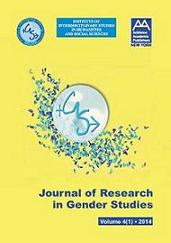Être et ne pas être: le droit civil français et l’impossible troisième sexe
To Be Or Not To Be: France Civil Right And No Third Sex
Author(s): Arnaud PaturetSubject(s): Gender Studies
Published by: Addleton Academic Publishers
Keywords: hermaphroditism; French civil law; legal status; the third sex
Summary/Abstract: Despite the undeniable progress in integrating homosexuality or transsexualism, contemporary French civil law does not have the tools to assimilate in its taxonomies setting body of the perfect hermaphrodite. Because it is both male and female, being bisexual is perceived as an individual outside of existing legal and social categories. Since ancient Roman times to modern times through the medieval era, Western society rejects the legal concept of the third sex and is organized around the fundamental difference between man and woman, which is at the origin of specific roles, vested in the social imaginary. Echoing this binary distinction, the civil status of persons is in principle designed around the original definition of a single sex, immutable, established at birth. Although the jurisprudence of the Court of Cassation allows sex change under certain conditions, since the 1990s, any attempt to create a combined status of intersexualisme is not recognized by the law, which could for example result from a mismatch between the name and sex mentioned in marital status, an thus should be rejected. It follows from the binary legislative straitjacket that the hermaphrodite cannot obtain legal recognition of its biological specificity. Moreover, the constraints of marriage law merely the conditions of its union: same-sex marriage is still prohibited in France, one must choose a spouse of the opposite sex, as recorded in official documents. Despite this obvious discrimination, the creation of a legal intersex is not in the agenda and divides those who are thinking about: indispensable for some, better for others, unacceptable to a great number of authors. It should be noted that such an intermediate category has been recognized recently in Tamil Nadu, a state in southern India, to allow eunuchs, hijras to benefit from the terms granted to every citizen without requiring them to be characterized as male or female. These can now be marked for “T” on their family or ration card. Such an initiative deserves the full attention of the lawyers. Posing an alternative to strict and immutable distinctions imposed so far by all laws human right endorsed by the idea that gender identity is an evolving process, and there may be throughout the existence psychological trajectory showing changes in its relationship to masculinity or femininity.
Journal: Journal of Research in Gender Studies
- Issue Year: 4/2014
- Issue No: 1
- Page Range: 290-317
- Page Count: 28
- Language: English
- Content File-PDF

